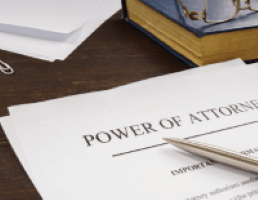If you have been asked to be an Attorney for someone under an Enduring Power of Attorney (EPOA), you might consider it quite an honour.
An EPOA is a very powerful document and the person appointing you typically trusts you implicitly.
You can’t, however, be forced into the role and you should consider it carefully before signing the EPOA to accept your appointment.
What if, after accepting your appointment, you decide that you can no longer fulfil the role?
I recently had a client who had taken on the role with the best of intentions, but his circumstances changed significantly and he asked me how he could “get out”.
The answer depends on whether the person who made the EPOA still has capacity.
If the answer is ‘yes’, it’s as simple as the Attorney providing them with written notice (i.e. a letter or email of resignation).
If the answer is ‘no’, it’s not so simple.
In that scenario, the Attorney needs to apply to QCAT for leave to resign.
QCAT can then ensure a person who has lost capacity isn’t left without someone to help them and, if required, QCAT can appoint an appropriate replacement.

